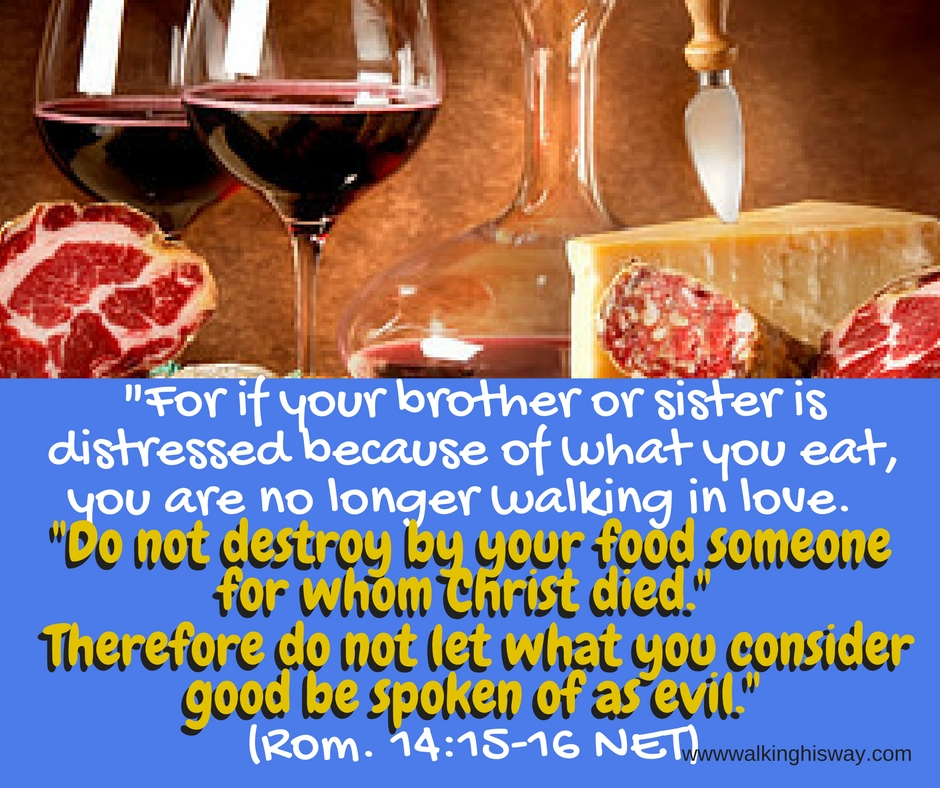 Rom 14:15-16 “For if your brother or sister is distressed because of what you eat, you are no longer walking in love. Do not destroy~| by your food someone for whom Christ died. :16 Therefore do not let what you consider good be spoken of as evil~|.”
Rom 14:15-16 “For if your brother or sister is distressed because of what you eat, you are no longer walking in love. Do not destroy~| by your food someone for whom Christ died. :16 Therefore do not let what you consider good be spoken of as evil~|.”
When personal rights create division and disharmony, it might be better to give up our rights. In certain regions of the world, or among certain groups of people, it is offensive to eat certain foods that are not offensive in other cultures (e.g., pork in a Muslim community).
What should a Christian do in these questionable areas? What should guide our choices?
There are two overarching principles: always act in love (i.e., seeking the benefit of others) and maintain peace in the body of Christ (Col 3:15). Paul declared, “No food is unclean in itself” (14:14), but not all believers agreed. The Jerusalem Council (Acts 15 in AD 49) asked the Gentile churches not to eat meat from animals that had been sacrificed to idols. Paul agreed to communicate this opinion to the Gentile believers because it was not worth dividing over.
Flaunting liberties can create division. If our liberties cause others to be “distressed” (i.e., “hurt, grieved, causing pain”), we “are no longer walking in love.” Wounding another’s conscience could destroy his faith (Rom 14:13, 21). Love always avoids this consequence.
Paul establishes that everyone needs to follow his or her personal convictions in areas not clearly commanded (Rom 14:5, 14a, 22–-23) under the love principle: “Walk in love, as Christ also has loved us and given Himself for us” (Eph 5:2). Have convictions but don’t separate over them.
Jesus has a huge investment in every believer, so the issue is that your liberties might hurt not just another person but a person “for whom Christ died.” Furthermore, He is bonded to that person in such a way that anything done to him or her is perceived as having been done to Christ Himself (Acts 9:4–-5; Matt 25:40). Be careful!
Paul’s final command is to stop letting “what you consider good to spoken of as evil.” In unclear areas, believers are free to partake or abstain. Our liberty must be limited by the commitment to protect others and Christ’s reputation. The question is, how much do others matter to us?
“Dear Father, I ask You for help in making decisions about Christian convictions. You want us to be a blessing and a help to others on their life journey, so provide me wisdomn,ot allowing pride or selfishness to take control.”
